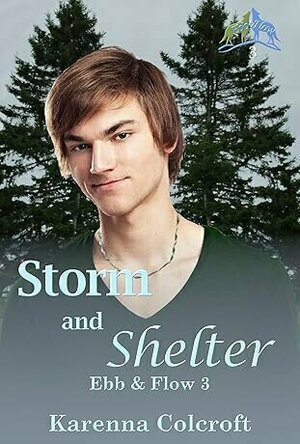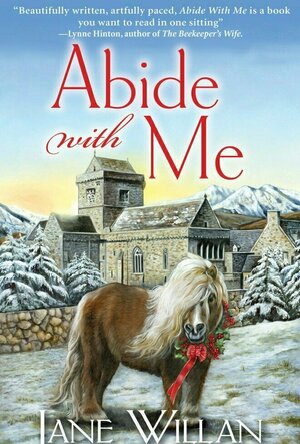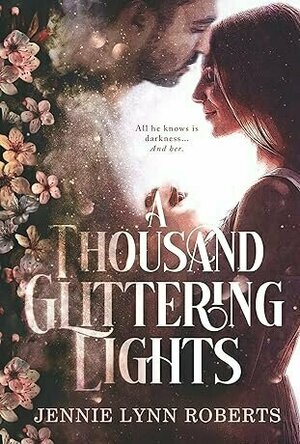Shelle Perry (66 KP) rated Abide With Me : A Sister Agatha and Father Selwyn Mystery in Books
Dec 16, 2020

Gro Garden
Education and Games
App
* "Gro Garden is a great way to learn about sustainable farming and organic gardening." -...

The Couple at No 9
Book
It was the house of their dreams. Now it's their worst nightmare . . . THE SUNDAY TIMES BESTSELLER...
It’s spellbinding, in fact.
Three generations of witches tell the stories of how they came into their power despite the interference of society and men (mainly men though 🤷🏼♀️).
In 1619, Altha Weyward is on trial for witchcraft, and whilst she’s in the towns prison she reminisces over her mother, her life before, everything she has learnt and the circumstances that led up to her incarceration. Altha had the knowledge needed to help people, but that same knowledge put her in danger from the church and general ignorance (and we can’t have women knowing more than men, can we!)
In 1942, Violet Ayres lives a very restricted life, tucked away from the rest of the world in her family home. She has only two clues about her heritage: her dead mothers locket with a “W” inscribed and the word “Weyward” scratched into the skirting board under her bed.
2019, Kate Ayres escapes a violent relationship in London and flees to Weyward cottage - the house her Aunt Violet had left her in her will. It’s a wild, unkempt, rundown house and garden, but it’s what Kate needs. She finds Altha’s diaries, some writings from Violet, and begins to learn about her true inheritance.
I just loved this book so much. Women taking control of their lives away from the men who would control them. Nature and magic is woven throughout, and nothing feels far-fetched or unbelievable.
I loved the alternating chapters between the three women, and this was probably the main reason why I couldn’t put it down. I needed to know what was going to happen to each of them next.
What more can I say? This WILL be high up in my favourite books this year. And to have read it in February!! How lucky am I!
I can’t wait to see what Emilia Hart writes next.
Many thanks to NetGalley and Harper Collins UK for my ebook copy of this book to read and review. Of course these are my own opinions!
Merissa (13784 KP) rated A Thousand Glittering Lights in Books
May 22, 2024
Jennie Lynn Roberts is a one-click author for me BUT I will admit to feeling slightly dubious when I saw this was a contemporary. Surely it can't be as good as her fantasy - can it? The obvious answer is YES!!! It can be just as good, in fact, I'm hard-pressed to say which I prefer.
Ellie isn't having an easy time of it and struggles to leave the safety of her cottage. Her best friend and business partner is giving Ellie plenty of excuses about why she can't be there for her. Her dad is pressuring her to sell her business. And then - out of nowhere - a man, or ghost, starts appearing to Ellie. She thinks she's going mad. And I loved it.
There is a level of mystery to this story that had me hooked. I didn't try to figure things out for myself. I just sat back and let the story hold me, and boy, did it ever. There were so many levels to this that all fitted together perfectly in ways that might not be immediately clear. In fact, I think I may be a little afraid of this author if she ever decides to go 'dark!' 😆
This book was a very emotional read for me, with situations and circumstances so incredibly well written, I felt it like a punch to the throat. I was f'ugly crying more than once, while still trying to convince myself that I'd get my HEA.
There's so much to this book that I absolutely adored and have no hesitation in HIGHLY RECOMMENDING. Seriously, get your copy and lose yourself in this steamy, supernatural romance.
** same worded review will appear elsewhere **
* A copy of this book was provided to me with no requirements for a review. I voluntarily read this book; the comments here are my honest opinion. *
Merissa
Archaeolibrarian - I Dig Good Books!
May 22, 2024

Storm and Shelter (Ebb & Flow #3)
Book
A year ago, Quinn Boucher was in his third year of university. He had plans. A life. And then in one...
Fantasy MM Romance
Kristy H (1252 KP) rated Dear Mr. M in Books
Feb 13, 2018
I had heard a lot about Koch's novels and was excited to win this one via a Goodreads Giveaway. It was certainly interesting and definitely different than many novels I read. I have to admit that it was a rather slow read, especially the first three quarters or so. There was actually a point where I was considering giving up for a bit, but I soldiered on. Some characters in the novels never have names (just initials), and we don't really get insight into who our varying narrators are. While I understand why (and it adds to the drama of the novel), I'll confess that it gets a little confusing at times. You really have to stay on your toes as you read.
Still, the novel is definitely more compelling toward the end, and I found myself staying up late to finish it. The twist at the end was certainly not what I expected. The varying viewpoints wind up working out well, as you really see the story unfold from everyone's perspective. Still, I found the story a bit diluted by a bit of a "meta" storyline about writers, as well as an odd insertion about M's father and his role in the resistance, as well as M's own views, which never really seemed to have a full role or point in the tale. I enjoyed the novel, but I didn't love it, and it (frankly) exhausted me a bit.
I received a copy of this novel via a Goodreads Giveaway (thank you!) in return for an unbiased review.

True iLoan - Calculator
Finance and Business
App
How can you find your best loan? The only way is to compare the true rate. The true rate take into...

London Super Scale A-Z Street Map
Travel and Navigation
App
KEY FEATURES ● Offline detailed street level map for the whole of the Central London area. ●...

Martha Stewart's Homekeeping Handbook
Book
Whether your home is small or large, an apartment in the city or a country cottage, it is a space...
homekeeping household maintenance housework diy kitchen



